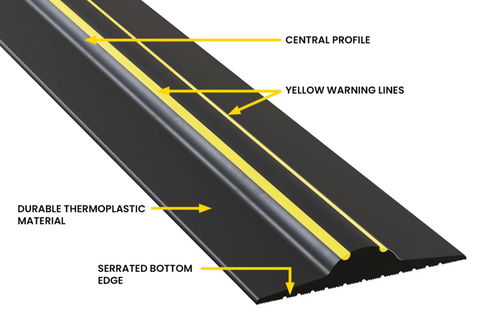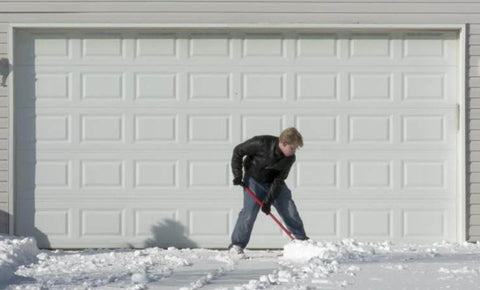What Stops Your Garage Door From Opening When It's Cold Outside?
There are a lot of reasons why it’s harder to get the day started in winter. It can be tough to get motivated when you wake up and it’s still dark outside, for example. You may not want to get bundled and brave another day of sub-zero temperatures. You almost certainly don’t look forward to another commute made longer by slick roads. Your garage door may have a hard time getting started in winter, too, but for different reasons. If you’re having winter issues with the garage door, here are some of the most common causes.
CRACKED AND BROKEN SPRINGS
One effect of the cold on metal is that it gets harder, which means it’s also more brittle. This can wreak havoc on your garage door’s springs. A broken spring is one of the biggest garage door issues and one that typically is outside of the realm of DIY'ers. You most likely will need a professional’s expertise, because dealing with high-tension garage door springs is serious business.
THE RUBBER SEAL IS FROZEN TO THE FLOOR
The seals you see at a zoo may love winter, but rubber seals do not. The standard rubber seal that runs along the bottom of your garage door can freeze to your garage floor — literally overnight, as even a little precipitation turns into a binding strip of ice. You can combat this problem with a garage door threshold seal designed to divert water. Sprinkling salt along the line where the garage door and floor meet also can help, as can keeping your garage heated.

HOW COLD AFFECTS METAL
A high school science student can tell you that metal expands when it’s warm and contracts when it’s cold. That means winter can cause the tracks and hardware in your garage door to shrink ever so slightly — enough to tighten the clearances for some moving parts, making it difficult for the door to open or close properly. If your garage door seems to be locked in place during winter, try using a heat gun or hair dryer to warm it before you call in a professional.
LACK OF LUBRICANT
If your garage door doesn’t have enough lubricant in summer, you might not notice because it won’t be as big of an issue. If your garage door lacks lubricant in winter, however, it might not work at all. You should always check to make sure your garage door has enough grease to keep it in good working order when it’s warm out, so you can be sure it will continue to work when the temperatures plunge.

FROZEN GREASE
Even if your garage door does have enough lubrication, the cold still can affect how well it works. If it gets cold enough, in fact, the grease may coagulate and harden along the tracks, making it nearly impossible for your door to open or close smoothly. If that’s the case, you may need to work on warming your garage with a space heater or turning up the thermostat to get the grease loosened again.
There are plenty of reasons why your garage door may be sluggish or just plain unwilling to open in winter, but it’s not because it would rather stay in bed. If you’re having trouble with your garage door in the cold weather, think about these potential reasons and see if you may be able to solve the problem yourself. If not, contacting a professional garage door specialist may be the right call for getting your garage door back on track.
